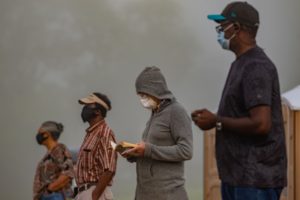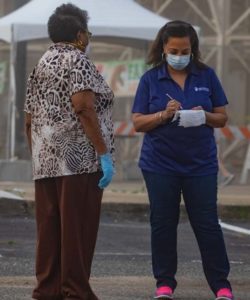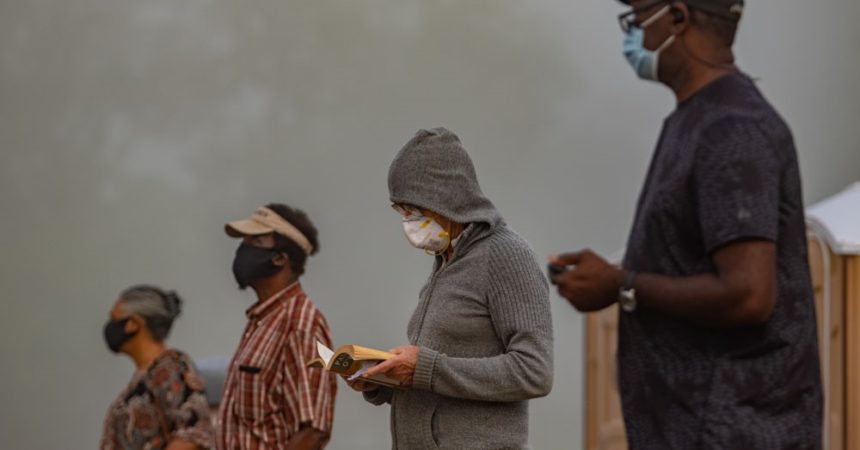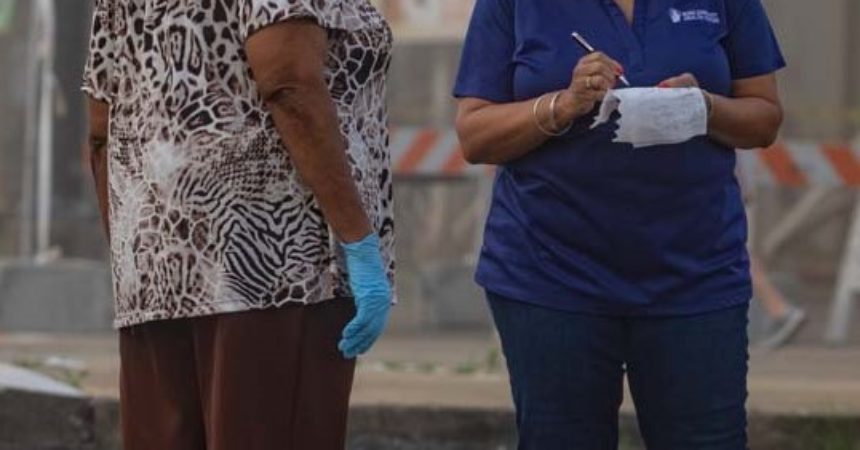Challenges for Blacks are more than underlying health issues during pandemic
While the COVID-19 pandemic has disrupted everyday life across the country, it has also exposed racial disparities to the point that health experts and civil rights leaders have been calling for a fix.
There is a consensus that the fatal cases are much higher in Black communities because of underlying health issues, but there are other concerns that have also surfaced. The list includes the unavailability of testing and the inability of Blacks to get to many of the testing sites.
In Leon County, where Blacks make up about 39 percent of the population, 60 percent of those who have died as a result of the virus are Black. The Florida Department of Health report last Sunday also showed that Black deaths are high in other parts of the state.
In last Sunday’s Leon County update, the state health department reported 134 Black cases compared to 102 White. In all, the county had 264 cases as of Sunday, with 33 hospitalized and six deaths.

People wait in line for their turn to be tested recently outside of Bragg Stadium.
Photos by FAMU Office of Communications
Local health official speculate that the number of Blacks who have died from the virus might have been higher if it weren’t for a free testing site at FAMU. Almost 5,000 people were tested as of last Sunday, four days before the last day of testing.
In addition to testing, the Centers for Disease Control have been recommending that people wear protective masks in addition to staying at home. While there isn’t any data to indicate a racial breakdown on who are wearing masks, there are known cases where Blacks have refused to follow the guideline.
For instance, Alexis Roberts McMillan, pharmacy manager of Economy Drugs Store in Frenchtown, recalled an instance when she couldn’t give a free mask to a Black man who visited her store.
The man insisted that “God will take care of me,” she said.
Roberts McMillan said she’s also seen an example of another case that makes Black susceptible to the virus. In this case, another man wanted his blood pressure medication refilled without the involvement of his physician.
The individual was notified a month before his medication ran out that he’d need authorization from his doctor for the refill. She discovered that the individual had a falling out with his doctor, resulting in his refusal to get it resolved before Roberts McMillan got him help through a community health center.

Dr. Temple Robinson (right), CEO of Bond Community Health Center, assisted with checking in individuals to be tested.
“We are trying to make sure that we can do everything that we wouldn’t ordinarily do to keep ourselves healthy as best we can,” Roberts McMillan said. “It’s so much of a challenge to try and make sure we are doing everything we can for our people of color.”
Complete data by race has been inconclusive, but reports made public has consistently shown that Blacks across the country are suffering more than any other ethnic group.
The most cases of Black deaths are in the South, although specific data is sporadic on the total number of Blacks affected. However, data provided by the Associated Press showed that Blacks accounted for 42 percent of deaths nationwide as of mid-April.
The testing at Bragg Stadium drew a high turnout that attracted a cross-section of ethnic groups. That was attributed to the testing being free without requiring a physician’s referral – two key reasons that experts say kept Blacks away from being tested.
However, more Blacks could have been reached, said Dr. Temple Robinson, CEO of Bond Community Health Center. FAMU also partnered with in presenting the free testing.
Robinson said she would have liked to see more Black participation from the surrounding communities that includes nearby Bond, South City and Providence. She also announced that the health center will set up satellite testing sites within the area’s Black communities.
“We are going to have to take the mountain to Muhammad, if you will, to get deeper into some of our communities,” Robinson said. “We are going to have to get deeper into the community.”
Robinson said the testing at Bragg was an overwhelming success because many of those who showed up encouraged others to be tested.
“I think once the word-of-mouth spread through the neighborhood that this was a very inviting place, where everyone had a soft touch people felt comfortable coming,” she said. “We gave them a warm entry.”
The free testing was prompted by the need to reach Blacks, one reason that FAMU President Larry Robinson decided to partner with Bond, said Cynthia Harris, director of the FAMU Institute of Public Health.
“With FAMU being right there on the Southside, we needed to make sure that we were having a testing center that provided access and remove the barriers that we’ve often seen.
“What we hoped to do is to have an impact by proving this access.”
Access to free testing has been one of the arguments raised by Dr. Edward Holifield, a retired cardiologist and community activist in Tallahassee. Harris said she reached out to Holifield during the final stage of planning for the testing.
Coronavirus “is killing Black people like flies,” said Holifield, who added that in addition to underlying health conditions Blacks have jobs that they can’t do remotely. They are on the frontline as nurses and other essential workers, he said.
“They can’t stay at home,” he said. “They have to put their lives at risk otherwise they don’t have a job.”
Harris said every individual who was tested was given information on how to follow up regardless of the outcome of their test. They were also encouraged to practice good health care, she said.
“Hopefully through that, someone or several who my actually test positive may now have an opportunity to address it early on,” Harris said. “A lot of times what happen is the intervention happens too late.”
As part of making intervention a priority, plans are under way to build a new health facility at the entrance of Frenchtown. That was disclosed by Tony Brown, CEO of T Brown Consulting Group, which is helping with the planning of a mixed-use development project in Frenchtown.
Brown said TMH and Neighborhood Healthcare Center are backing the project that will bring holistic services to the Frenchtown community. He called the project essential to Blacks because Frenchtown is one of the areas considered medically underserved.
Ground breaking should take place by next spring for the clinic, Brown said. It will be located on the corner of Tennessee Street and MLK Boulevard.









